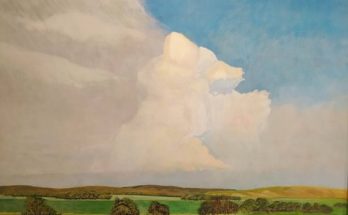By Cosimo Zán
In Virginia Hernandez Reta’s short story collection “Diana and the Hyenas,” (Ediciones Periféricas, 2023), the characters face the daily contradictions that are part of the world. There are neither heroines nor great adventurers but sentient characters who navigate the world without sometimes completely understanding it. Some stories show an involuntary sense of humor like Alfredo in the story “Polvo Somos” (We Are Dust) or the old women in “At the Gates of Heaven.” Other characters are darker like the tourist in “G20” or the narrator of the homonymous story, “Diana and the Hyenas.” The author says that some of these characters were born from her own fears but taken to the extreme of what if. Others reflect the misery that makes us human.
This the second collection of the author from Mexico City. Written over the course of a decade, the 11 stories that make up this volume are linked through estrangement. Hernández Reta says, “I have read and reread them with the eyes of then and now. Time after time I was surprised by the number of times I used the word ‘alien’ throughout these texts. This only confirms what I consider the primordial impulse for a story to seem worth telling: the strangeness—sometimes with a hint of disappointment other times with black humor—that the paradoxes of life cause me.”
“There are 11 stories,” she says, “11 universes in which these characters gravitate who could be our neighbors, our acquaintances, (even) our relatives. And they all share this humanity that makes us vulnerable, fragile, and at the same time worthy of empathy.” She then adds, “I am interested in the inner mystery of the human being more than just the outside of it. This does not mean that the stories are not inserted and indicate certain social circumstances. In fact, they all have social problems as a background: marginalization, violence, insecurity, illegality, old age, discrimination, the objectification of women, poverty, the voracity of the media…”
Hernández Reta says that her greatest literary challenge in writing “Diana and the Hyenas” was staying faithful to what she wants to say, regardless of literary fashions. «In a world where being new is imperative, the challenge of writing “Diana and the Hyenas” was to believe in the effectiveness of a leisurely tone within a fast-paced world.» However, she says, there is another risk—one that is increasing among writers and readers: “Standing up to the discreet discrimination that exists in the media (publishing) for my gender and age. Being a cisgender woman and being over 50 throws me into the trunk of authors who we assume have nothing to say. However, I risk trusting in the validity of a work that speaks of what does not change: contradictory human nature.”




